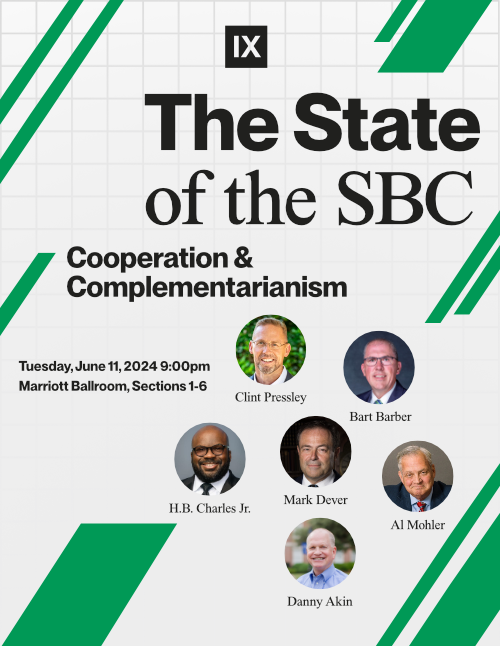Patience: A Pastor’s Superpower
A Dennis the Menace comic strip by Hank Ketcham pictures young Dennis sitting at the kitchen table with paper and crayons. He has wadded up a piece of paper and pitches it to the ground. Busy with food preparation, his mother cocks her head to catch her son’s exasperated outburst: “How come patience takes so LONG?” Indeed!
The church I serve as lead pastor has patiently welcomed my ministry among them for 30 years. Like any good marriage, love has played a leading role in our hard-won relationship. Patience has played a major supporting role in the outworking of that love. Pastoral patience—the capacity to invest sufficient time in the pursuit of kingdom outcomes without freaking out—is a vital virtue in the exercise of pastoral care.
What fool would claim to be an exemplar of pastoral patience? I sometimes wonder if 30 years of service to a single flock is more indicative of my unimaginative, head-down, plow-horse orientation to life than it is to patience. In any event, patience is a prime color on the palette of pastoral fidelity. Consider a few examples.
PATIENCE WITH PROSPERITY
“Prosperity” is a much-abused word I wish to redeem for the purpose at hand. By “prosperity” I speak narrowly of that stage in a church’s life at which she attains relative financial stability and maturity. At this juncture, members of the church, as well as discerning members of churches in close fellowship, sense that your church has attained stable ground, is unified in purpose, and demonstrates substantial kingdom returns on her biblically calibrated ministry.
A sizeable majority of pastors are called to churches having yet to attain such a stage of spiritual prosperity. Pastors of church plants, revitalization efforts, and a host of other unexceptional congregations will begin their ministries in environments that are shaky at best, if not largely dysfunctional. Most of us assume leadership of churches tottering on wobbly legs.
It takes gutsy patience to stay the course week in and week out, year after year, while the milestone of healthy stability seems no closer on the horizon. Temptations to impatient “solutions” beset pastors along this grinding journey. Persevering patience keeps your hand on the plow when inquiries about the size of your congregation prove embarrassing—or when someone sees a picture of your church’s building, hears the paltry figure of your missions budget, or wonders why you don’t have more elders by now.
I accepted the call of a church with 10 families. We were squatters, meeting with no lease in the basement of a languishing retail mall. For the next 22 years, we labored in a string of inferior buildings. I’m well acquainted with the way pride assaults such plodding patience by waving tantalizing shortcuts to prosperity in your face. After all, I started pastoring in the heyday of the so-called church growth movement. Such shortcuts were well-packaged and widely marketed for immediate implementation. All one had to do, we were exhorted, was plug in. Or shove off. But the blueprint required multiple services practicing liturgical apartheid, entertainment evangelism, and the jettisoning of formal church membership, corrective discipline, and expository preaching. So I had to tell myself, “Patience, Dan. Tune out the noise. Serve the reigning Christ. Gently lead the flock to calibrate ministry to the New Testament pattern. Permit the seeds to germinate. Wait on Jesus.”
Alongside the allure of unfaithful methods designed to manufacture rapid growth is the temptation to jump ship. Opportunities may arise for a younger pastor to lead a larger church or join a more prestigious ministry. God may indeed call a pastor to leave his flock, but impatience can render us so itchy to “do something bigger for God” we abandon our flock like a hireling. Patience is renowned for her counsel to stay the course. What God can do with me elsewhere, he can usually do with me right where I am.
PATIENCE WITH PEOPLE
Shepherds lead sheep and sheep are slow creatures—really slow creatures! They don’t change or move quickly. By nature, they meander and mosey, hesitate and halt. Pastoral impatience with slow moving sheep is understandable. It is also lethal.
Pastoral discipleship is fueled by patience. Gossips slip up. Alcoholics and drug addicts relapse. The fearful find new reasons to fret. Marriages recover, then devolve. The unrepentant dig in their heels. The promiscuous return to their vomit. Critical complainers find fresh reasons to bellyache. The proud justify new reasons to uncase their trumpets. The spiritually weak keep stumbling, while spurning wise counsel on where to walk. Meanwhile, faithful pastors keep on loving all of them. Pastoral patience stokes our resolve to walk alongside sinners who move forward so slowly and backward so effortlessly.
Coupled with prayer, nothing inflames such patience with people like meditating on God’s patience with me. He never ditches his covenantal love for me out of frustration. He remains unrelentingly loyal to me as his son—day after day, failure after failure, weakness stacked on weakness, ugliness oozing from my spirit. He never leaves me or forsakes me. For reasons that outstrip credulity, he just keeps loving me, loving me, loving me.
This God, this Lord of unrelenting grace, may call me to leave the church I shepherd. But he will never call me to quit on them. I’ve had days I wanted to quit on my church family. I have especially longed to quit on certain members of that family. On occasion, the desire grows strong enough to fantasize about ditching the few at the cost of the many. But in those selfish, shriveled-spirit moments, Christ’s steadfast love for sinners compels repentance and refreshed patience with his sheep. “Keep loving them, loving them, loving them.”
PATIENCE WITH PREACHING
Preparing exegetically and theologically accurate, humanly engaging, skillfully organized, well-illustrated, ably applied, zealously delivered sermons is exhausting. Some weeks, it’s impossible! Composing quality sermons is akin—as someone once put it—to sculpting cement with a spoon. Delivering them with unction is akin to draining a battery. Persistent, patient endurance is essential if one proposes to faithfully feed God’s Word to his flock for any length of time.
Early in my pastoral ministry I could only afford a single, desktop computer. The church needed my computer at the church office so I found myself finishing sermons late on Saturday nights while my wife was at home alone. It seemed no matter how hard I tried, I simply could not conquer the blackhole of sermon preparation in a timely manner. Week after week I headed home around midnight, sometimes later. One such evening I lost it. Frustration inflamed anger and I violently slammed my hand on the dashboard of my car. “How come sermons take so LONG!?”
Well, the purchase of my first laptop solved much of this angst, and a repentant heart went some ways toward changing my perspective on sermon preparation. I love the study, love the discovery, love the spiritual nurture such labor yields. But consistently bringing sermons to delivery remains an unrelenting, sermon-by-sermon discipline. Fatigue, distraction, competing responsibilities, and lengthy sessions of deep concentration demand patient endurance. There are many rich rewards for such labor. There are no shortcuts. Pastor, it’s supposed to be that hard. And God alone can give us the patience to do it effectively for the long haul.
PATIENCE WITH PRAYER
I want to be a “man of prayer.” I’m not one. Some people think I am, but they are simply comparing me to themselves. I pray every day. Prayer is my life-breath as a Christian warrior (Eph. 6:18). I love to pray, most days. But I am nothing close to an exemplar of prayer.
Nonetheless, I’ve prayed long enough to know that a genuine prayer life requires patient endurance. Patience is required to keep investing seasons of time in prayer when the demands of life are screaming at you to get off your knees and “do something.” Patience is required to pray for the same people day after day—often with no evident answer to your petitions. Patience is required to pray when we don’t feel like praying, when doubt bedevils confidence in God’s promises, when our souls have grown calloused and unimaginative, when we are tempted to genuflect before the specter of pastoral despair, when we simply run out of words.
In the parable of the persistent widow, Jesus taught us to pray without losing heart (Luke 18:1). Jesus knows our natural bent against importunity in prayer—our struggle to invest sufficient time before God’s throne to secure kingdom victories in keeping with the King’s promises. He calls us, then, to patient persistence in this mission.
While these four samples of pastoral patience constitute a collective imperative, they are no product of our own ingenuity. The virtue of pastoral patience is fruit only the outpoured Spirit of Christ can produce in us (Galatians 5:22–23). May we rejoice, then, to throw ourselves in dependence upon him for the persevering patience to finish well, by his grace, and for his glory.








